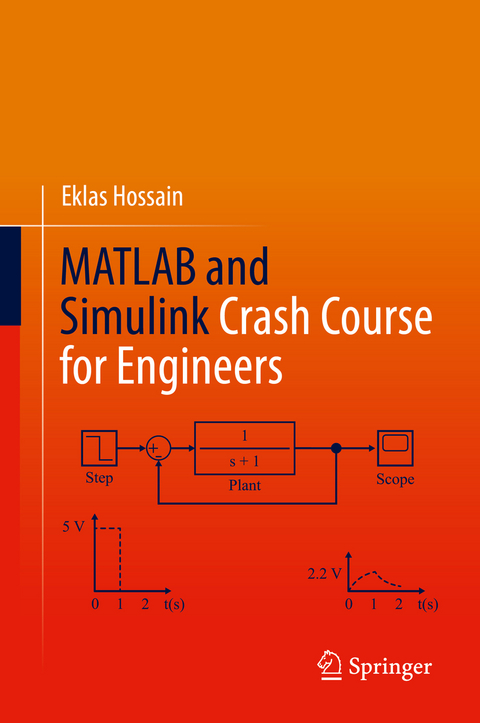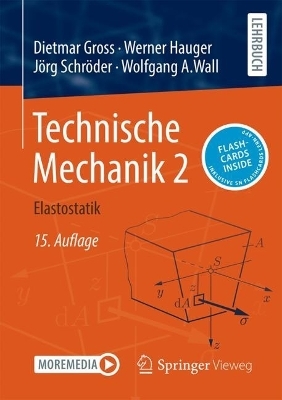
MATLAB and Simulink Crash Course for Engineers
Springer International Publishing (Verlag)
978-3-030-89761-1 (ISBN)
lt;b> Dr. Eklas Hossain is an Associate Professor in the Department of Electrical Engineering and Renewable Energy and an Associate Researcher with the Oregon Renewable Energy Center (OREC) at Oregon Institute of Technology. He has been working in the area of distributed power systems and renewable energy integration for the last ten years and has published a number of research papers and posters in this field. He is currently involved with several research projects on renewable energy and grid-tiered microgrid systems at Oregon Tech. He received his PhD from the College of Engineering and Applied Science at the University of Wisconsin Milwaukee (UWM), his MS in Mechatronics and Robotics Engineering from International Islamic University of Malaysia, and a BS in Electrical & Electronic Engineering from Khulna University of Engineering and Technology. Dr. Hossain is a registered Professional Engineer (PE) in the state of Oregon, a Certified Energy Manager (CEM) and Renewable Energy Professional (REP), a senior member of the Association of Energy Engineers (AEE), and an Associate Editor for IEEE Access, IEEE Systems Journal, and IET Renewable Power Generation. His research interests include modeling, analysis, design, and control of power electronic devices; energy storage systems; renewable energy sources; integration of distributed generation systems; microgrid and smart grid applications; robotics, and advanced control system. He has authored the book Excel Crash Course for Engineers (Springer, 2021), co-authored the book Renewable Energy Crash Course: A Concise Introduction (Springer, 2021), and is working on several other book projects. He received the Rising Faculty Scholar Award in 2019 and the Faculty Achievement Award in 2020 from Oregon Tech for his outstanding contribution to academia. Dr. Hossain, with his dedicated research team, is looking forward to exploring methods to make the electric power systems more sustainable, cost-effective and secure through extensive research and analysis on energy storage, microgrid system and renewable energy sources.
Introduction to MATLAB.- Vectors and Matrices.- Programs and Functions.- Complex Numbers.- Visualization.- Solving Equations.- Numerical Methods in MATLAB.- Electrical Circuit Analysis.- Control System and MATLAB.- Optimization Problem.- App Designer and Graphical User Interface in MATLAB.- Introduction to Simulink.- Control System in Simulink.- Commonly Used Simulink Blocks.- Electrical Circuit Analysis in Simulink.- Application of Simulink in Power Systems.- Application of Simulink in Power Electronics.- Application of Simulink in Renewable Energy Technology.
| Erscheinungsdatum | 09.03.2022 |
|---|---|
| Zusatzinfo | XXI, 657 p. 822 illus., 757 illus. in color. |
| Verlagsort | Cham |
| Sprache | englisch |
| Maße | 155 x 235 mm |
| Gewicht | 1178 g |
| Themenwelt | Mathematik / Informatik ► Mathematik ► Angewandte Mathematik |
| Technik | |
| Schlagworte | Dynamical Systems • Electrical Systems • graphical programming • Graph Plotting • Mathworks • MATLAB • Model-based design (MBD) • Modelling and Simulation • Multidomain simulation • numeric computing • SIMULINK • Test and Measurement • Vectors and Matrices |
| ISBN-10 | 3-030-89761-3 / 3030897613 |
| ISBN-13 | 978-3-030-89761-1 / 9783030897611 |
| Zustand | Neuware |
| Haben Sie eine Frage zum Produkt? |
aus dem Bereich


